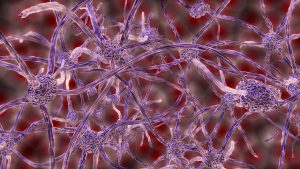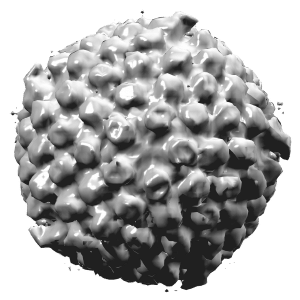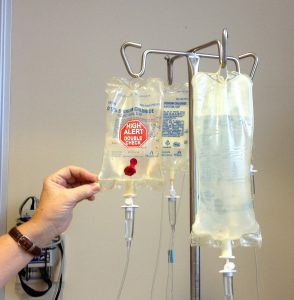Cancer is a scary word, and rightly so: an estimated 1,898,160 new cases of cancer will be diagnosed in the United States this year, and 608,570 people will die from the disease in that same time. But while most of us know that cancer is common, and that it can be deadly, many of us don’t have a full understanding of this disease, including all of the many different types of cancer that can occur. For example, we often think of types of cancer being described by the body part they originated in (like lung or breast cancer), but because some body parts contain multiple types of tissue, cancers are additionally classified by the type of cell that the tumor cells originated from. One such type of cancer is known as a sarcoma, which is cancer that occurs in the connective tissues in the body. This Sarcoma Awareness Month, we want to highlight this little understood form of cancer, including its symptoms, causes, treatment, as well as who it is most likely to affect, so you can know what to look out for and catch it early on.
What Is A Sarcoma?
Sarcoma is a form of cancer that usually begins in the bones or forms within the tissues that connect and surround other body parts (soft connective tissues). Because these soft tissues are nearly everywhere in your body, sarcomas can grow in any part of your body, appearing in fat cells, muscle, blood vessels, nerves, and tendons.
Around 60% of sarcomas start in an arm or leg, 30% start in the torso or abdomen, and 10% begin in the head or neck. Soft tissue sarcomas start out small and can go unnoticed, but will grow and eventually cause pain and interfere with the body’s functions. There are roughly 70 different types of sarcomas; each are named according to the normal tissue cells that they most resemble. For example, Fibrosarcoma resembles fibroblasts, which are the most common type of cells in connective tissue.
Risk Factors & Causes
Sarcoma is fairly rare in adults; in fact, according to the American Society of Clinical Oncology, adults only account for 1% of those who have the cancer. This type of growth is more common in children, representing about 15% of all childhood cancers. Unfortunately it is not clear what causes most sarcomas, and they sometimes occur seemingly at random in people with little or no family history. However, some risk factors have been identified by researchers:

- Inherited syndromes– Certain inherited syndromes can increase the risk of this type of cancer, such as neurofibromatosis type 1.
- Radiation– Radiation therapy for other cancers increases the risk of developing soft tissue sarcoma later on.
- Exposure to chemicals- Certain chemicals, such as herbicides, vinyl chloride, and dioxins can increase the risk of sarcomas that affects the liver.
- Exposure to herpesvirus 8– This virus can increase the risk of Kaposi’s sarcoma, which typically occurs in people with weakened immune systems.
- Chronic swelling, or lymphedema- If the lymphatic system is blocked or damaged, swelling from a backup of lymph fluid can occur, which can increase the risk of angiosarcoma.
Signs & Symptoms
Symptoms of sarcoma will depend on the type of sarcoma a person has. People with soft tissue sarcomas rarely experience any symptoms in the early stages, but symptoms will become more pronounced as the cancer progresses, and can include:
- A lump or swelling that may or may not be painful
- Pain in the bone, muscles, or nerves of the area where the sarcoma is located
- An unexpected broken bone that occurs with little or no injury
- Weight loss
- Abdominal pain
Diagnosis & Treatment

If you experience unusual pain, a lump that is more than 2 inches across, or any of the above symptoms, you should see your doctor, who will refer you to a pathologist if they suspect sarcoma. This type of doctor specializes in sarcoma; they will examine tumor samples to identify what type of sarcoma it is, and will perform an exam, run tests, and request imaging scans, such as an MRI or X-ray.
In the event that you are diagnosed with a sarcoma, your doctor can recommend:
- Surgery to remove the tumor and surrounding tissue
- Radiation therapy to destroy the cancer cells
- Chemotherapy to kill any cancer cells left after surgery
- Medications
If you have any unusual symptoms, it is important to get checked out by your doctor. We want you to have a great health insurance plan so you can see your doctor whenever you need to, without having to worry about the cost – so if you are looking for an affordable plan, come to EZ.Insure for help! EZ works with the top-rated insurance companies in the nation, which makes comparing and finding the best plan for you easier, and means you’ll get the best price possible. We provide quotes, compare plans, assess your needs, and sign you up for a plan at no cost to you – our services are free! To get free instant quotes, simply enter your zip code in the bar above, or to speak with a local licensed agent, call 888-350-1890. No obligation.